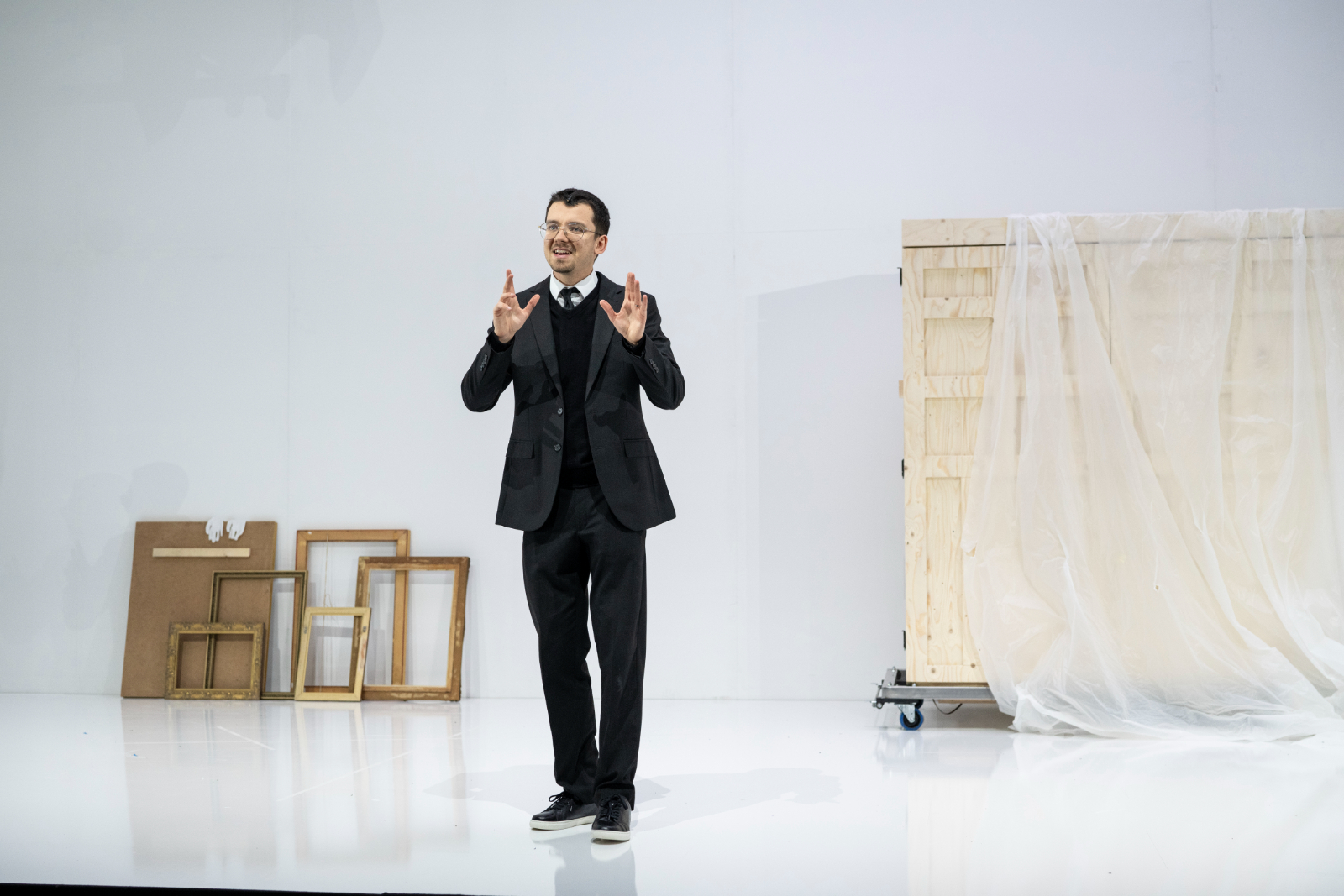Your response to Barney Norris’s one-man play, based on David Foenkinos’s bestselling novel as translated by Megan Jones, probably depends on which of the Gens is yours.
The Gen Zs might turn a nose up, Joanne Rowling something of a discredited figure in their eyes. Millennials will identify straight away with Martin, the protagonist, whose life is "stalked" by Harry Potter. Gen Xs will catch the peculiar and unexpected impact of parenthood on a complicated, if hitherto stable, middle-class life. And, Okay Boomers, what about us? I was reminded of Kenneth Williams, Bernard Cribbins and, especially, Rik Mayall on Jackanory. Not quite Maggie Smith or Thora Hird on Talking Heads, but that’s still quite a testimonial for Asa Butterfield (pictured below).
The Sex Education actor deserves it too, as he makes an assured stage debut, putting bums on seats (and a few pounds on the ticket price) at a tough time of year for theatres. In terms of stunt casting, this is very much at the Jodie Comer in Prima Facie end of the spectrum as opposed to the Sigourney Weaver in The Tempest flop. Butterfield’s electric charisma may not be so much of a surprise, but his ease in dominating Fly Davis’s cruelly expansive, cruelly sparse stage, is certainly less expected.
He needs to bring that starry wattage to a story that proves hard to warm to, a good premise first stretched and then holed beneath the waterline by a litany of first world problems that would struggle to gain much empathy shorn of its silver bullet – more of which later.
Of course one feels for him, but divorcing parents and childhood disappointments are hardly unique experiences (literally hundreds of Premier League hopefuls are cast on to football’s scrapheaps at 16 or younger every summer). There’s a strong whiff of French first world problems – what one might call the Juliette Binoche effect, given her movies in recent years. Martin is married to a French doctor who loves him very much, has a healthy baby on the way and a job as the Personnel Manager at The Louvre a few short years on from starting as a gallery attendant! He’s also good looking, charming and possesses a carapace of self-confidence that he may deny, but that we can all see with our own eyes.
Just as you’re reaching for the world’s smallest violin, the silver bullet arrives not in the form of character development or a plot twist or even another cathartic external event. Martin is sectioned, his mental health a danger to himself and those around him. Whilst MH is certainly an issue for society and, obviously, therefore a subject for contemporary theatre, dramaturgically, it can offer the same Get Out Of Jail Free card that time travel does (as used in Harry Potter and the Prisoner of Azkaban). It all feels unsatisfactory, a MacGuffin where there should be some plot.
An alternative reading presents the whole narrative as a hospital fever dream – but that device is even worse than a late arriving psychosis!
After 90 minutes peppered with some decent laughs (though some gags are certainly stretched) and a little heartrending pathos, director Michael Longhurst calls a halt and we’re left to assume that they all live happily ever after.
Everyone will identify with something in Martin’s story, but whether anyone identifies with enough to sustain attention (there’s a lot of distractions, including more soot than in My Neighbour Totoro) or to justify those eye-watering prices, might depend on whether you keep that violin close to hand or not.












Add comment